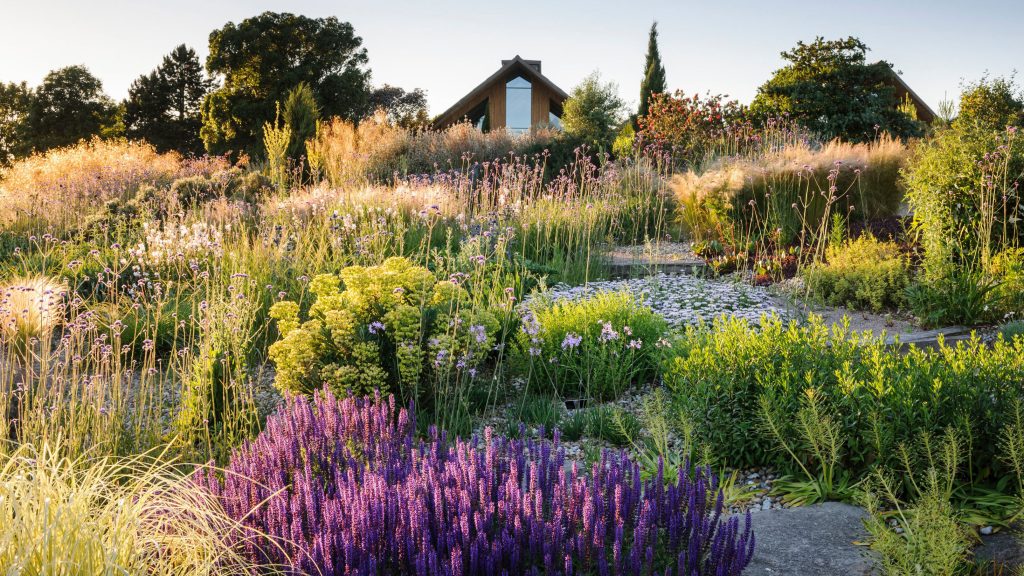As someone who has always had a deep connection with nature, I have always been fascinated by gardening. There is something incredibly rewarding about nurturing a small seedling and watching it grow into a thriving plant. Over the years, I have discovered that gardening can be much more than just a hobby. By adopting sustainable gardening practices, we can not only create beautiful, thriving gardens but also contribute to the well-being of our planet.
One of the most important aspects of sustainable gardening is conserving water. With water scarcity becoming a growing concern in many parts of the world, it is crucial that we use this precious resource wisely. One way to achieve water efficiency in your garden is by installing a drip irrigation system. Drip irrigation delivers small amounts of water directly to the roots of the plants, minimizing wastage. Additionally, collecting rainwater in barrels or cisterns can provide a sustainable source of water for your garden.
Another vital aspect of sustainable gardening is soil health. Healthy soil is not only essential for plant growth but also for sequestering carbon dioxide, a major greenhouse gas responsible for climate change. To improve soil health, consider practicing composting. Composting is a natural process of decomposition, where organic materials such as kitchen scraps, leaves, and grass clippings are broken down into nutrient-rich compost. By incorporating compost into your soil, you can enrich it with essential nutrients, improve its structure, and promote the growth of beneficial microorganisms.
In addition to conserving water and improving soil health, sustainable gardening also involves using organic methods to manage pests and diseases. Instead of relying on synthetic pesticides that can harm beneficial insects and disrupt ecosystems, opt for natural alternatives. For instance, companion planting, where certain plants are grown together to deter pests, can be an effective method. Planting marigolds, for example, can help deter nematodes, while attracting beneficial insects like ladybugs. Additionally, using organic insecticidal soaps or neem oil can help control common garden pests organically.
When it comes to sustainable gardening, it is essential to embrace biodiversity. Planting a diverse range of plants not only adds beauty and interest to your garden but also creates a balanced ecosystem. By including native plants in your garden, you can provide habitat and food for local wildlife, including birds, bees, and butterflies. Native plants are well adapted to local conditions, requiring less water, fertilizer, and pesticides. They also help preserve regional biodiversity and support the survival of endangered species.
Sustainable gardening is not just limited to what we grow but also how we maintain our gardens. By practicing responsible waste management, we can minimize our environmental impact. Instead of sending green waste to landfills, consider starting a compost pile or participating in community composting programs. Additionally, avoid using synthetic fertilizers that can contribute to water pollution. Instead, opt for organic fertilizers, such as compost or worm castings, which provide nutrients in a slow-release manner, promoting healthier plant growth and reducing the risk of runoff.
Furthermore, sustainable gardening extends beyond our own backyard. By embracing permaculture principles, we can create self-sustaining systems that work in harmony with nature. Permaculture involves designing and establishing productive ecosystems that mimic natural patterns and relationships. By integrating elements such as edible plants, water features, and beneficial insects, we can create gardens that not only provide us with food and beauty but also enhance biodiversity and contribute to a healthier planet.
In conclusion, sustainable gardening is all about taking a holistic approach to our gardens. By conserving water, improving soil health, using organic pest management methods, embracing biodiversity, practicing responsible waste management, and embracing permaculture principles, we can create beautiful, thriving gardens that support the well-being of our planet. As gardeners, we have the power to make a positive impact and inspire others to adopt sustainable practices in their own little patches of green. So, let’s get our hands dirty and start our journey towards a more eco-friendly future, one garden at a time.

